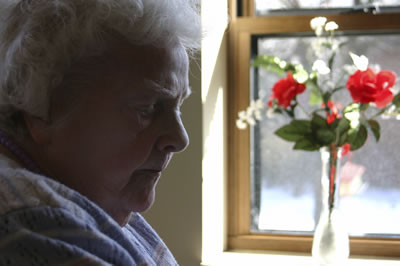Decubitus Ulcers
Decubitus ulcers (commonly known as pressure ulcers, pressure sores or bed sores) occur when bony prominences place pressure onto the skin, causing breakdown. These pressure ulcers often surface as a result of nursing home neglect. Common areas for these ulcers to occur are the heels and buttocks or tailbone. Decubitus ulcers are categorized or “staged” as follows:
Stage I decubitus ulcer – the skin is reddened, but not yet broken. The redness will disappear when the area of pressure is relieved. However, extreme care must be taken to ensure that the area does not progress to a Stage II. Intervention includes pressure relieving foam or air mattresses and frequent re-positioning. Proper fluid and nutritional intake is crucial.
Stage II decubitus ulcer – a partial thickness of the skin has sustained injury, usually in the form of a blister which may or may not be open. The wound must be covered, protected and kept clean. Infection is a concern. A Stage II wound will heal rapidly if the appropriate interventions are taken. Pressure relief and proper fluid and nutritional intake must be given.
Stage III decubitus ulcer – skin breakdown is now involved through all layers of the skin. A Stage III ulcer usually occurs when a Stage I or II ulcer has not received the appropriate aggressive treatment and interventions to prevent worsening. Infection may lead to sepsis, a life-threatening infection. A Stage III ulcer requires trained medical intervention.
Stage IV decubitus ulcer – the ulcer now extends through all layers of skin and involves muscle, tendons and bone. The depth of the wound is more important than the actual diameter of the wound, since bone involvement can lead to amputation. Major surgical intervention to remove necrotic (dead) tissue and/or bone is usually required.

11%
Nursing home residents who will suffer a pressure ulcer
(Centers for Disease Control and Prevention)
Prevention of Decubitus Ulcers
The best treatment for decubitus ulcers is PREVENTION, which includes:
- Turning schedules for residents who are unable to re-position themselves
- Not allowing residents to remain in wheelchairs for extended periods of time
- Pressure-relieving foam heel protectors, foam or air bed mattresses and wheelchair pads
- Appropriate fluid intake, nutrition and vitamin therapy
- A regular program to inspect each resident’s skin integrity and implementation of aggressive preventive daily care
The information provided on this site concerning decubitus ulcers is meant as a brief overview. Specific Federal and State laws and regulations apply and each case is unique and fact-intensive. Please contact our office today for additional information and assistance.
Call Our Law Office Today - (800) 821-5872
Contact Form
Your initial consultation is always free and confidential.
